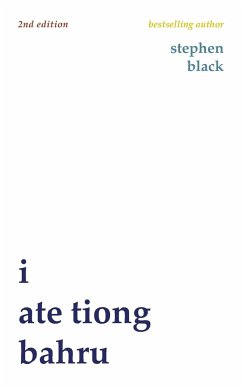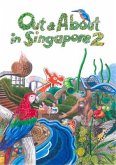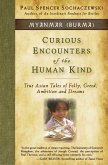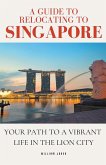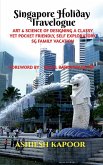The first edition of i ate tiong bahru sold out, largely due to word of mouth. Published independently, the collection of essays first struck a chord with the residents of Tiong Bahru, then with the nation of Singapore as a whole. The book's unusual combination of historical documentation, detailed observations of daily life and lyrical writing became an instant classic. This second edition features a new story and layout. The new story is about Ronnie and the Burns, Singapore's first rock and roll band. It begins in the time of the decline of Imperial China, continues through the tragedies of the Japanese Occupation and concludes with a historic night of rock concerts closely watched by the Singaporean authorities. Many of the other twelve stories are about food, including the story behind thumb-shaped kuehs, Singapore's first food artwork. The author spent Dewali, the Indian festival of light, creating a portrait of Galicier, a pastry shop specializing in Peranakan sweets. Although influenced by the British, Galicier uses ingredients and recipes that reflect hundreds of years of Southeast Asian culture. More food essays: The Blue of an Edible Flower, A Coffee Break With Chef Judy, Smoke and Mirrors and Soymilk Blues. Other stories reference the world famous Tiong Bahru market, a must-see destination that has been visited by Prince Charles, Anthony Bourdain, Ferran Andrià and anyone interested in hawker food. Also featured are ceremonies and stories connected to the Monkey God Temple. The Canal and the Blue Orchid is a thoughtful story about a late night walk along a nondescript drainage ditch. Tiong Bahru's most striking feature is that it is an estate composed of Art Deco buildings. The history of these truly unique buildings is brought alive with imaginative writing and personal anecdotes. The author lived in Tiong Bahru for several years. His genuine camaraderie with the residents resulted in a portrait of a warm and caring community that seems to have now been replaced with a gentrified hipness. i ate tiong bahru avoids nostalgia, instead using the magic of words to allow the reader to relive both intimate and communal moments in Tiong Bahru's history. "Black's brief love-letter to his now former home is one of the best introductions to a country and a state of mind that you might read." ArtReview Asia
Hinweis: Dieser Artikel kann nur an eine deutsche Lieferadresse ausgeliefert werden.
Hinweis: Dieser Artikel kann nur an eine deutsche Lieferadresse ausgeliefert werden.

